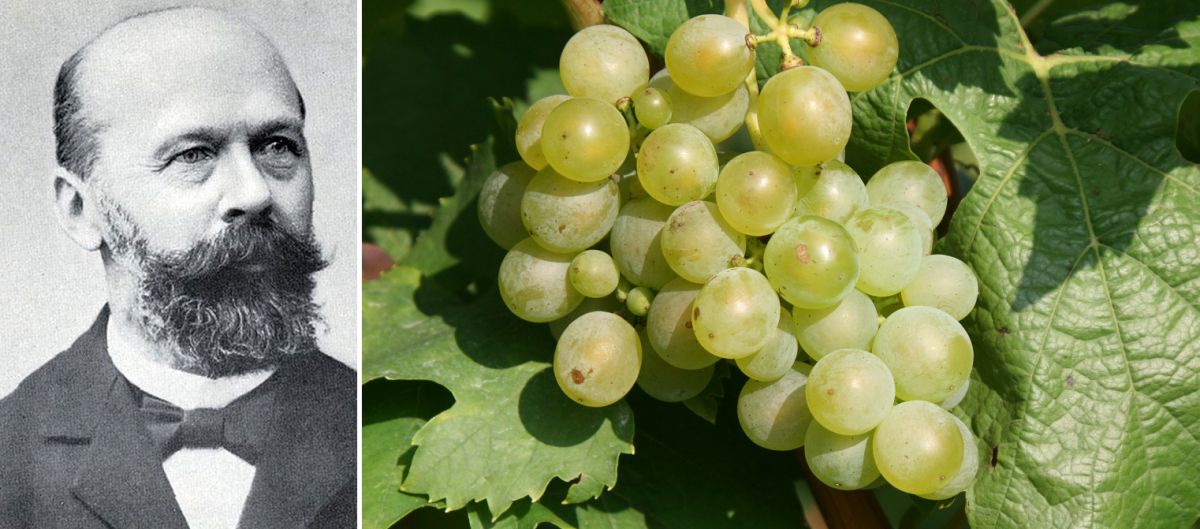The Swiss botanist, oenologist and vine grower Dr. h.c. Hermann Müller (1850-1927) named himself after his home canton Müller-Thurgau. He first attended the teacher training seminar and then became a teacher at the secondary school in Stein am Rhein. He then studied in Zurich at what is now the Swiss Federal Institute of Technology (ETH), graduating in 1872 with a diploma in natural sciences. After studying at the University of Neuchâtel (Switzerland), he moved in 1872 to the former Botanical Institute of the University of Würzburg, where he received his doctorate in 1874. From 1876 to 1890 he worked in a leading position at the plant physiological experimental station of the Geisenheim Research Institute. In 1891 he was appointed to the Experimental Station for Fruit, Wine and Horticulture in Wädenswil, today's Agroscope Changins-Wädenswil, where he became director.

He became known above all through the new Müller-Thurgau variety, which was later named after him. He did not live to see the final clarification of parenthood, but only became possible much later, after decades, through DNA analyses. But he was also very successful in other fields. For example, he conducted groundbreaking research in the fields of vine physiology, phytopathology (plant diseases) of the vine, especially botrytis, downy mildew and red burner. He was also the first to recognise and study the links between climatic influences and dormancy in vines and fruit trees.
In cellar technology, Hermann Müller-Thurgau researched the possible control of alcoholic fermentation, the biological degradation of acids (he correctly identified bacteria as the cause of malolactic fermentation), and undesirable developments in the fermentation and maturation of wine. Furthermore, he bred fermentation yeast strains with special properties and dealt with methods for the production of alcohol-free grape juices and for the production of fruit juices. Müller is regarded worldwide as a pioneer in the field of unfermented pasteurised fruit juices. Among his most important publications are Edelfäule der Trauben (1887), Die Herstellung unvergorener und alkoholfreier Obst- und Traubenweine (1896), Der Rote Brenner des Weinstock (1903) and Bakterien im Wein (1913). The Prof. Müller-Thurgau Prize is awarded in thanks and recognition to personalities who have rendered outstanding services to the Research Institute for Viticulture, Fruit and Horticulture in Geisenheim. See also under winegrowing personalities.
Müller-Thurgau: Wikipedia, ISBN 3-8001-3023-8, public domain, link
Grape variety: From rose branch - Photographed by myself, CC BY-SA 3.0, Link
Voices of our members

Using the encyclopaedia is not only time-saving, but also extremely convenient. What's more, the information is always up to date.
Markus J. Eser
Weinakademiker und Herausgeber „Der Weinkalender“